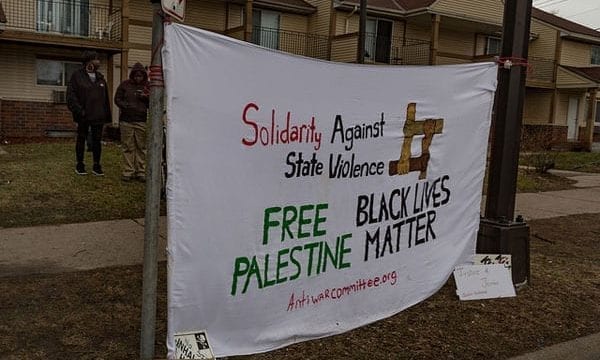
December 9, 2018; Nation
In a time when the disparities in basic human treatment differ both predictably and wildly according to race, as well as many other social assignments, it is important to pay attention to the case of Dr. Marc Lamont Hill.
Dr. Lamont Hill, a Temple University professor, was recently fired from his contributor post at CNN for a speech he gave at the United Nations on November 28th where he criticized Israel’s “policies of oppression against Palestinians in the context of international law,” as Phyllis Bennis and Rev. Dr. William J. Barber write in the Nation.
The context for Dr. Lamont Hill’s speech is the UN’s 70th anniversary of “both the Universal Declaration of Human Rights and the Palestinian experience of the nabka, or catastrophe, of 1948—when 750,000 Palestinians were displaced from their homes, expelled from their land, and dispossessed of their country with the creation of the state of Israel.” One would have to do serious verbal contortionism to not talk about the human rights violation against the Palestinians in this context.
Bennis and Barber continue,
Hill depicted how the Palestinians, during that experience and since, have continued to be denied the very rights—political, civil, economic, social, and cultural rights—supposedly guaranteed to every human being in the Universal Declaration.
Sign up for our free newsletters
Subscribe to NPQ's newsletters to have our top stories delivered directly to your inbox.
By signing up, you agree to our privacy policy and terms of use, and to receive messages from NPQ and our partners.
They argue, “Dr. Hill’s comments were not anti-Semitic; they are anti-oppression.”
As we like to say in the hood, “Don’t get it twisted.” But twisting it is what it’s all about nowadays.
Israel passed a new nation-state law earlier this year declaring Israel an ethno-state for Jewish people, “which asserts that while more than 20 percent of Israeli citizens are Palestinian Christians and Muslims, ‘the right to exercise national self-determination in the State of Israel is unique to Jewish people.’”
Black people have long recognized our shared plight with Palestinians, as secondary citizens. The Washington Post’s Noura Erakat writes, “An overwhelming majority of [UN General Assembly] states, constituting the self-described Third World, considered Palestinian liberation as central to its agenda for challenging Western dominance and establishing a new international order.”
The Movement for Black Lives platform for the advancement of black freedom globally establishes solidarity with Palestinians and calls for Boycott, Divestment, and Sanctions. Erakat notes the backlash against BLM, “BLM member groups understood the backlash as an attempt to dictate the scope and vision of black freedom.”
Human rights have been overlooked by our sector as an important anchor for our work. It’s a strong attractor, but we don’t use it. Dr. Hill’s assertion that state rights do not precede human rights is right on and needs to be taken up by civil society to ensure that no spurious arguments that violate human rights are entertained as legitimate. Take note, because white nationalists in the US want a white ethno-state. It’s time to embrace human rights as foundational to nonprofits, as they have been for social movements, before it’s too late.—Cyndi Suarez













